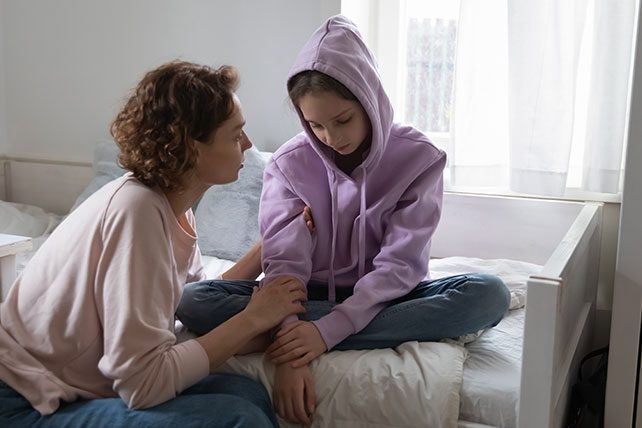Mother’s Day is often a joyful occasion. But for teens from broken homes, the occasion can be stressful or uncomfortable. Then the same goes for Father’s Day in June. Yes, teens want to celebrate their parents. The problem? The traditional family is no longer traditional. This puts many youth in a conundrum on days like Mother’s Day.
What if your parents are divorced? What if they’re remarried and you have four parents? Do you hurt your biological mom if you acknowledge that your stepmom loves you too? What if your mom or dad is no longer present in your life and someone else is raising you? What if your parents are divorced and one is now with a same-sex partner? Then you might have three moms and one dad.
Plus, adolescence is filled with a push-and-pull distancing from parents. Teens often tell me they feel disconnected and invisible at home. Meanwhile, some parents say their kids don’t want to be with them. Parents hunger for a sentimental card, while a child may not want to write it.
So how do you help teens who struggle on Mother’s Day? Follow these four suggestions…
Broken Homes & Mother’s Day
1. Remember: Kids still want their parent.
Maybe you think this isn’t an issue in your youth group. Mother’s Day will simply come and go. Let me tell you: Teens are thinking about it. They’re wondering how to respond and what to do.
Many teens from difficult family situations are deep-down waiting for Mom and/or Dad to show up and be a parent. Often we think, “Well, your parents are a trainwreck anyway” (even if we never say it aloud).
We may not be able to fix broken homes. But we can remember that teens love their parents and long for home to be a place of wholeness.
2. Be sensitive.
Many congregations do something special for Mother’s Day and Father’s Day. Although teens no longer make cards in Sunday school, they’re aware of those difficult Sundays.
You may not know the depth of at-home struggles or how kids really feel. But that doesn’t mean you have to ignore it. So be aware of sweeping statements about family. Help youth group members consider all the people who support them. They may need to see how God has filled in the gaps with others who love them radically.
3. Talk to teens who need support.
A guy may say he’s alright with his mom’s cancer diagnosis. But that doesn’t mean he isn’t wondering if this Mother’s Day will be the last. The girl who recently lost her dad to a heart attack is secretly dreading Father’s Day. So is the one who has a dad in jail. Perhaps a parent in the military spends more time deployed than at home.
We don’t always consider Mother’s Day and Father’s Day as “real” holidays. So we don’t always acknowledge them well with teens. Watch for attitude changes in students and see if they need someone to talk to. Take a student out for coffee and talk to them about whatever’s on their heart.

